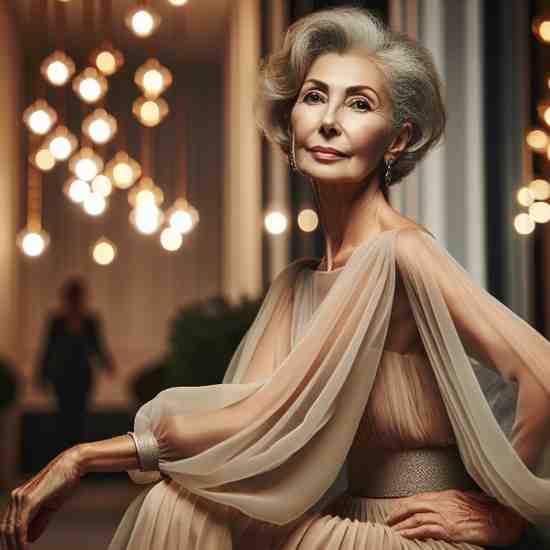Contents
Understanding the term “GILF”
As the world evolves with online slang, acronyms, and slang, the phrase “GILF” has emerged as one of the more notable, albeit controversial, additions. The acronym “GILF,” which stands for “Grandmother I’d Rather F,” has been gaining popularity in popular media, particularly in online communities and social media. Despite its widespread use, this term carries serious connotations and is often considered offensive and insensitive. The purpose of this article is to present an understanding and respectful description of “GILF,” exploring its context, history, influence, and the impacts of using such terms.

The Meaning of “GILF”
The term “GILF” specifically refers to women who are older, typically considered to be grandmothers, and are perceived to be attractive on a sexual level. In some cases, however, the word can also refer to grandfathers. However, this kind of usage isn’t as widespread. This acronym is a fun pun, although crude, on the older and more commonly used term “MILF” (Mother I’d Like to Have***). Although “MILF” itself has sparked many debates over the objectification of women, “GILF” takes this to the next level by focussing on a subset of women who have traditionally not been considered to be attractive.
The Origin of “GILF”
The exact origin of the word “GILF” is difficult to find, but it’s possible that it occurred at the beginning of the 2000s, with the advent of the internet and culture starting to grow. Web sites like Urban Dictionary and various online forums played an integral role in spreading the word. Similar to many internet slang phrases, “GILF” quickly spread across various platforms and eventually became part of the broad digital dictionary.
Cultural Impact
Its influence on the “GILF” culture is multifaceted. On one hand, it confronts societal expectations about ageing and attractiveness. It highlights the idea that women still find the older population attractive. This shift towards more inclusive perceptions of beauty and desirability could be significant. On the other hand, people often fault the term for its crude and demeaning nature, reducing individuals to being merely sexual objects.
The use of “GILF” in media and entertainment has led to debates concerning ageism as well as sexism. Many see it as a humorous way to recognise that the attraction of a person does not diminish as you age; others claim that it is a way to perpetuate harmful assumptions and discredit people who are older.
Potential Implications
The use of words such as “GILF” has a number of moral and legal implications. Firstly, it’s crucial to understand that this language is negative and can contribute to objectification. Referring to someone as a “GILF” reduces their identity to their physical appearance and sexual attractiveness, ignoring their uniqueness and individual character.
Furthermore, this can promote the idea that being sexually attractive is not a norm but rather the norm in older adults, which can cause ageism. This has negative consequences for self-esteem and the societal expectations of older adults.
Conclusion
To summarise, “GILF” is a controversial and multifaceted acronym that has been a major part of online culture. It may be challenging traditional ideas about attractiveness and ageing, but it’s important to treat it with a degree of caution and understanding. Understanding the meaning, origin, and social impact of “GILF” can help foster more open and inclusive discussions about age and beauty. Much like any other slang phrase, it is important to know its larger implications and make sure that the language used elevates rather than degrades.